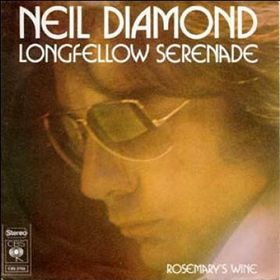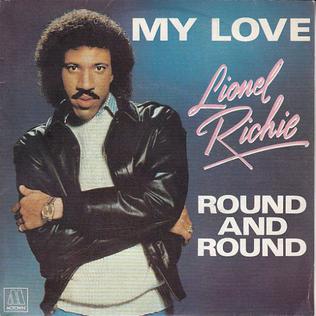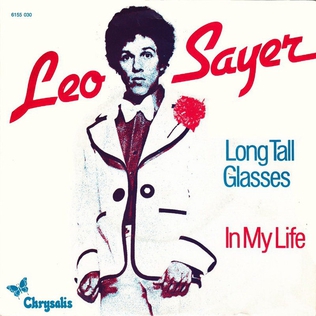
"Me and Bobby McGee" is a song written by American singer-songwriter Kris Kristofferson and originally performed by Roger Miller. Fred Foster shares the writing credit, as Kristofferson wrote the song based on a suggestion from Foster. A posthumously released version by Janis Joplin topped the Billboard Hot 100 in 1971, making the song the second posthumously released No. 1 single in U.S. chart history after "(Sittin' On) The Dock of the Bay" by Otis Redding. Gordon Lightfoot released a version that reached number 1 on the Canadian country charts in 1970. Jerry Lee Lewis released a version that was number 1 on the country charts in December 1971/January 1972 as the "B" side of "Would You Take Another Chance on Me". Billboard ranked Joplin's version as the No. 11 song for 1971.

"Ain't Nothing Like the Real Thing" is a 1968 single released by American R&B/soul duo Marvin Gaye and Tammi Terrell, on the Tamla label in 1968. The B-side of the single is "Little Ole Boy, Little Ole Girl" from the duo's United LP. The first release off the duo's second album: You're All I Need, the song—written and produced by regular Gaye/Terrell collaborators Ashford & Simpson—became a hit within weeks of release eventually peaking at number eight on the US Billboard Hot 100 and number one on the Hot Soul Singles chart, the first of the duo's two number-one R&B hits. In the UK "Ain't Nothing Like the Real Thing" reached number 34.

"If" is a song written by American singer-songwriter David Gates in 1971. Originally popularized by his group Bread, "If" charted at No. 4 on the U.S. Billboard Hot 100 when released as a single in 1971 and No. 6 in Canada. It also spent three weeks at No. 1 on the U.S. Easy Listening chart, and one week at the top of the Canadian AC chart.

"The Americans" is a commentary by Canadian broadcaster Gordon Sinclair. Originally written for a regular broadcast on CFRB radio in Toronto on June 5, 1973, it became a media and public phenomenon. It was replayed several times a day by some United States radio stations and released as a hit audio recording in several forms. Ronald Reagan credited it for giving comfort to the United States in difficult times, and it was widely rediscovered and re-disseminated as the United States faced new crises in the 2000s.

"Billy Don't Be a Hero" is a 1974 pop song that was first a UK hit for Paper Lace and then, some months later, a US hit for Bo Donaldson and The Heywoods. The song was written and composed by two British songwriters, Mitch Murray and Peter Callander.

"Love's Theme" is an instrumental piece written by Barry White around 1965. Recorded and released as a single by White's Love Unlimited Orchestra in 1973, it was one of the few instrumental and purely orchestral singles to reach #1 on the Billboard Hot 100 chart in the United States, which it did in early 1974. Billboard ranked it as #3 on the Year-End Hot 100 singles of 1974.

Janet Mead was an Australian Catholic nun who was best known for recording a pop-rock version of the Lord's Prayer. The surprise hit reached Number 3 on the Australian singles chart in 1974 and Number 4 on the Billboard Hot 100 in the same year. The single earned her a Grammy Award nomination and an Australian Gospel Music Awards in 2004. It sold over one and a half million copies and was awarded a gold disc by the RIAA on 8 April 1974. It was also certified gold in Australia.

"Another Saturday Night" is a 1963 hit single by Sam Cooke from the album Ain't That Good News. The song was written by Cooke while touring in England when staying in a hotel where no female guests were allowed. It reached No. 10 on the Billboard Hot 100 and was No. 1 on the R&B chart for a single week. In the UK, the song peaked at No. 23 on the UK Singles Chart.

"Longfellow Serenade" is the title of a 1974 song by the American singer-songwriter Neil Diamond. It was written by Diamond, produced by Tom Catalano, and included on Diamond's album Serenade.

"Show and Tell" is a popular song written by Jerry Fuller and first recorded by Johnny Mathis in 1972. This original version made it to #36 on the Easy Listening chart.

"Keep on Singing" is a 1973 song composed by Danny Janssen and Bobby Hart, and was originally recorded by Austin Roberts from the album Austin Roberts. It was released as a single on Chelsea Records and reached No. 50 on the U.S. Billboard Hot 100 and No. 39 on the Cash Box Top 100. In Canada it reached # 79. "Keep on Singing" was best known as a hit single by Helen Reddy in 1974.

"Cupid" is a song by American singer Sam Cooke, released on May 16, 1961. It charted at number 17 on the Billboard Hot 100 and number 20 on the Hot R&B Sides chart; the track performed best in the United Kingdom, peaking at number seven on the UK Singles Chart. The song is featured on Cooke's greatest hits album, The Best of Sam Cooke (1962). Cooke's producers had asked him to write a song for a girl they had seen on a Perry Como TV show—but once they heard her sing, they kept "Cupid" for Cooke himself.

"Never My Love" is a pop standard written by American siblings Don and Dick Addrisi, and best known from a hit 1967 recording by the Association. The Addrisi Brothers had two Top 40 hits as recording artists, but their biggest success as songwriters was "Never My Love". Recorded by dozens of notable artists in the decades since, in 1999 the music publishing rights organization Broadcast Music, Inc. (BMI) announced it was the second most-played song on radio and television of the 20th century in the U.S.

"My Melody of Love" is the title of a popular song from 1974 by the American singer Bobby Vinton. Vinton adapted his song from a German schlager song composed by Henry Mayer, and it appears on Vinton's album Melodies of Love. The song was also recorded by Spanish pop singer Karina as "Palabras de Cristal".

"My Love" is a song by American singer-songwriter Lionel Richie. It was released in 1983 as the third and final single from his self-titled debut solo album. The song features harmony backing vocals by country music singer Kenny Rogers. It reached the top 10 on three notable Billboard magazine charts in the spring of 1983: on the Billboard Hot 100 the song peaked at No. 5; on the Adult Contemporary chart, the song spent four weeks at No. 1; and on the R&B chart, the song topped out at No. 6. "My Love" was not among Richie's more successful singles in the United Kingdom, where it only managed No. 70 on the UK Singles Chart. In Canada, it peaked at No. 28 on the RPM Top 100 Singles chart.

"Never Ending Song of Love" is a song written by Delaney Bramlett, and, according to some sources, by his wife Bonnie Bramlett. It was originally recorded with their band, Delaney & Bonnie & Friends, in 1971 on the album Motel Shot. Released as a single by Atco Records the same year, "Never Ending Song of Love" became Delaney & Bonnie's greatest hit on the pop charts, reaching a peak of No. 13 on the Billboard Hot 100 and No. 8 on Easy Listening. It reached No. 16 in Australia.

"Stormy" is a hit song by the Classics IV released on their LP Mamas and Papas/Soul Train in 1968. It entered Billboard Magazine October 26, 1968, peaking at #5 on the Billboard Hot 100 and #26 Easy Listening. The final line of the chorus has the singer pleading to the girl: "Bring back that sunny day." The single, along with the prior release of "Spooky" and, soon after, the release of "Traces", formed a trio of solid hits for the band.

"I Like Dreamin'" is the debut single by Kenny Nolan, taken from his eponymous debut album. The recording was issued as the album's lead single in October 1976, spending 27 weeks on the U.S. Billboard Hot 100.

"Long Tall Glasses (I Can Dance)" is a 1974 song by Leo Sayer, co-written with David Courtney. It was released in the United Kingdom in late 1974, becoming Sayer's third hit record on both the British and Irish singles charts and reaching number four in both nations. It was included on Sayer's album Just a Boy.

"Could You Ever Love Me Again" is a 1973 song recorded by Gary and Dave. It became their greatest hit, reaching #7 in Australia and #1 in Canada. It was also a minor hit in the United States.




















